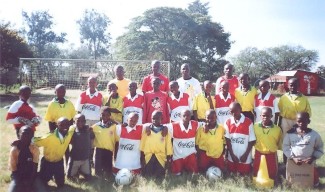BUILDING SAFER COMMUNITIES: A GUIDE TO PREVENTION WORK.

BUILDING SAFER COMMUNITIES: A GUIDE TO PREVENTION WORK.
As a recovery ally and preventionist, I firmly believe in the power of research-backed strategies such as engaging young people in healthy activities, like sports, volunteering, or creative pursuits, to reduce their risk of substance initiation. Substance use often arises from gaps in meaningful connections or unstructured time, making it essential to create opportunities that build protective factors within communities.
The role of professionals in prevention
One key responsibility of prevention professionals is to educate parents, families, and communities about the importance of extracurricular activities alongside academics. While academics are vital, an overemphasis may leave teens seeking a sense of belonging elsewhere, sometimes in unhealthy ways. By fostering environments that encourage positive, prosocial engagement, families can help children develop stronger attachments to their peers and community, reducing the risk of substance use.
How families can foster positive habits
Encourage families to create space for their children to participate in healthy activities and instill desirable values. Support caregivers in being clear about boundaries and expectations while facilitating open communication. Transparent, age-appropriate conversations about substance use can serve as a powerful modelling tool - not just for one family but for an entire community.
Professionals can help families build rapport and create environments for free-flowing discussions. For example:
a) Share conversations during a family meal.
b) Take family walks or engage in recreational activities.
c) Watch a movie together and use it as a conversation starter.
It’s important to dispel the myth that discussing teen substance use will increase its likelihood - research shows the opposite is true. Open dialogue empowers young people to make informed choices.
Using observational learning to prevent substance use
Children learn by observing their surroundings. Professionals should highlight the importance of avoiding alcohol or drugs in environments where teens have access. This reduces exposure and keeps harmful substances out of sight and mind.
I have utilized my skills, gained through ISSUP trainings and other resources, to initiate conversations that bring awareness to entire families. Resistance is expected, but the ultimate goal is to contribute to drug demand reduction and suppression.
Engaging as prevention professionals
Adolescence often involves experimentation and the drive to maintain peer connections. Professionals play a key role in supporting families by cultivating positive relationships and providing guidance on monitoring teen activities. By encouraging prosocial engagements - whether it’s through school clubs, sports, or volunteer work - we can help protect teens from the risks of substance use.
Escape strategies for teens
Prevention professionals should teach and practice refusal skills with teens, equipping them with key messages for saying no to substance offers. Some examples include:
a) Assertive refusal: “No thanks, I’m heading to practice. Why damage your health with that?”
b) Blame-shifting: “My dad insists that healthy living means avoiding drugs!”
c) Practical excuses: “No, I don’t drink anything except water. It’s healthier.”
By helping teens practice these responses, professionals empower them to navigate peer pressure with confidence.
Building trust through quality time
Setting aside time for meaningful connections with teens strengthens relationships and builds trust. This, in turn, equips young people with the skills and resilience needed for substance use prevention. The combined efforts of families, communities, and prevention professionals can lay the foundation for healthier futures and empowered decision-making.
#recovery #prevention #refusalskills #teens #parentsandcaregivers #families #community #peer pressure #sports #extracurriculars #recoveryally #protectivefactors #drugdemandreduction #familyqualitytime